This Book Will Not Be on the Test
This Book Will Not Be on the Test
The Study Skills Revolution
Paul Smith Rivas
Rowman & Littlefield
Lanham Boulder New York London
Published by Rowman & Littlefield
An imprint of The Rowman & Littlefield Publishing Group, Inc.
4501 Forbes Boulevard, Suite 200, Lanham, Maryland 20706
www.rowman.com
6 Tinworth Street, London SE11 5AL, United Kingdom
Copyright 2019 by Paul Smith Rivas
All rights reserved . No part of this book may be reproduced in any form or by any electronic or mechanical means, including information storage and retrieval systems, without written permission from the publisher, except by a reviewer who may quote passages in a review.
British Library Cataloguing in Publication Information Available
Library of Congress Cataloging-in-Publication Data
ISBN 9781475845594 (cloth : alk. paper)
ISBN 9781475845617 (Electronic)
 The paper used in this publication meets the minimum requirements of American National Standard for Information SciencesPermanence of Paper for Printed Library Materials, ANSI/NISO Z39.48-1992.
The paper used in this publication meets the minimum requirements of American National Standard for Information SciencesPermanence of Paper for Printed Library Materials, ANSI/NISO Z39.48-1992.
Printed in the United States of America
For Clare
Foreword
It is customary for a writer to choose a single epigraph at the start of a work to set a tone or context for the document that is about to be read; however, because the work that follows this foreword is in many ways unconventional, I, too, shall break form and embed three quotations, each from the poet W. B. Yeats.
Education is not the filling of a pail, but the lighting of a fire.
I first ran across Yeats in a modernist poetry class as an undergraduate in college. The idea of education as the lighting of a fire spoke to me at the time because I was on fire with my own learning: I was a ravening English major in my junior year, reading with a voracious appetite everything I could get my hands on. I had reached a point in my own education at which I was learning for myself, from myself, and I was uplifted. I didnt realize it as an undergraduate, but this concept would be my guiding principle as an educator.
I was reminded of this idea of education as fire when I read the book you now hold in your hands. Learning, by nature, is a passionate process of discovery, an innate skill. But far too often conveyer-belt, slow-drip educational systems seem content to fill, in turns, the proverbial pails of the young minds within it. As a result, many young peoplewhether at the high school level or as undergraduatesat some point lose touch with the natural learning abilities that made the challenge of exploring and experimenting with new ideas exciting. When Paul first showed me the early chapters of his manuscript, I realized he had actually put into philosophy and practice the art of lighting that fire again in a student.
Think like a wise man but communicate in the language of the people.
The strength of this book is that it breaks down this learning breakdown. But be prepared (and if I were to slip in a fourth epigraph to this foreword, it would be because I am reminded of Melvilles notion that, truth uncompromisingly told will always have its jagged edges), because Mr. Rivas tells it just like it is. (Youll discover this in the first line of the introduction.) Whether you are a student, parent, teacher, or administrator, you will be presented with the uncompromised truth of the many challenges involved in the real learning it takes for true success and an unflinching perspective from both sides of the desk.
Jagged as the pills are to swallow, they are necessary medicine for Pauls cure: You should feel uplifted by the many opportunities to excel that await you in your future, not worried about everything that could go wrong. As you now know, everybody is worried about the wrong stuff anyway.
The world is full of magic things, patiently waiting for our senses to grow sharper.
While each student is, of course, different, all students are in some way those in the stories collected here of actual students Paul has encountered in his many years of teaching. The book distills into a single slender volume what Paul has seen with his own eyes, over and over again, in many types of students, from many different backgrounds, in many different places. By reading it, and in following the methodologies and practices of what is needed for real success in reaching goals, academic or otherwise, our senses as students and teachers grow sharperand, once again, we begin to rekindle the fire in the magic in learning.
Jeff Landeck
Jeff Landeck is the director of a university learning resource center and has taught at the high school, community college, and university levels.
Preface
I grew up in the University of California, Santa Barbara (UCSB), athletic department because my dad was the academic advisor for the schools athletes. I started working there in eighth grade, when I was paid fifteen dollars per basketball gamein 1992 dollarsto track how many minutes each player played and the location and result of every shot attempt. I may be the only eighth grader in history to have had a job keeping official NCAA Division I statistics.
I continued this work through high school, although when I tell students that I worked twenty hours per week as a high school senior, I never count those hours, probably because I never saw watching college basketball as honest work.
When I was deciding whether to accept a max academic scholarship to attend UCSB or to pay through the nose to attend Stanford, the expanded role I would have in athletics, with adult-level responsibilities, was a big factor in my decision. The other big factors were that I was generally clueless about life outside Santa Barbarawhat do you mean, all beaches dont have tar?and I couldnt reconcile assuming massive amounts of debt for the privilege of attending an institution for the privileged, even if it would mean being a classmate of Chelsea Clinton. Stanford touted its alumni network heavily on my two visits there, but I didnt know what networking was.
My college job in athletics entailed keeping all statistics at basketball games, writing the annual media guide and weekly press releases for my assigned sports, doing the announcing and playing music between breaks in the action at home games, keeping all official statistics, writing game recaps and collecting quotes to send to local and national media outlets, and traveling with certain teams for road games. I worked between ten and fifty hours per week at this job, depending on travel, while triple majoring in math, sociology, and Spanish, and doing everything for the minor in athletic coaching except the coaching practicum.
It was an awesome job. I was getting paid to write, work alongside grown-ups, and travel, occasionally to hallowed venues like Allen Fieldhouse at the University of Kansas but mostly to places like Matador Diamond at Cal State Northridge.
When the 2001 college baseball season rolled around, I was a senior just back from six months of study abroad in Mexico City. I had already decided that I would pursue a career in education after college and not in sports, but I was still greatly looking forward to what everyone knew would be a good season.
The Gauchos had a great season. Twelve players from that team went on to play professionally, including two who had long careers in major league baseball. The season ended at the NCAA regionals at Notre Dame, where we got to touch the Play Like a Champion Today sign in the football tunnel and where I famously took a warning-track fly ball off the side of the head while jogging during batting practice. I was living the baseball dreams Id given up on at age seventeen, when I was five foot four and ninety-eight pounds and couldnt swing an adult bat.
Next page
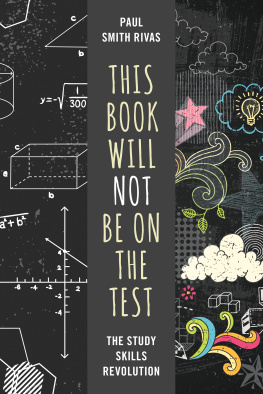
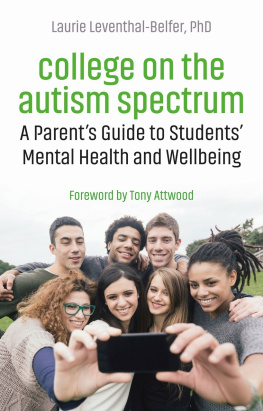
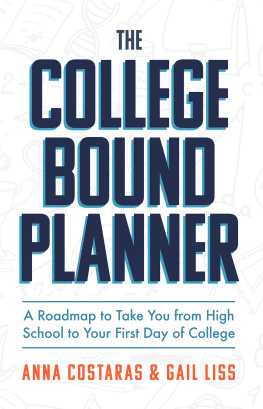
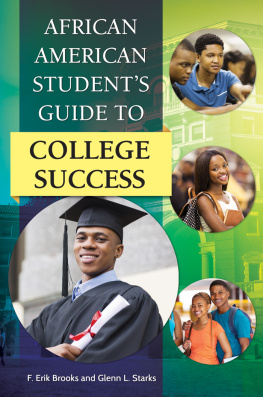

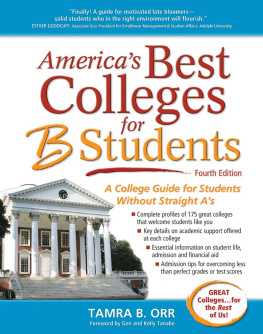
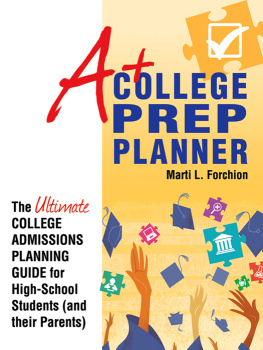

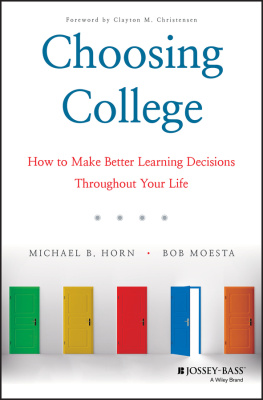
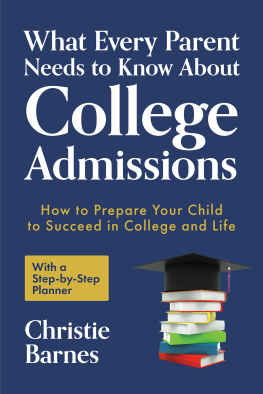
 The paper used in this publication meets the minimum requirements of American National Standard for Information SciencesPermanence of Paper for Printed Library Materials, ANSI/NISO Z39.48-1992.
The paper used in this publication meets the minimum requirements of American National Standard for Information SciencesPermanence of Paper for Printed Library Materials, ANSI/NISO Z39.48-1992.